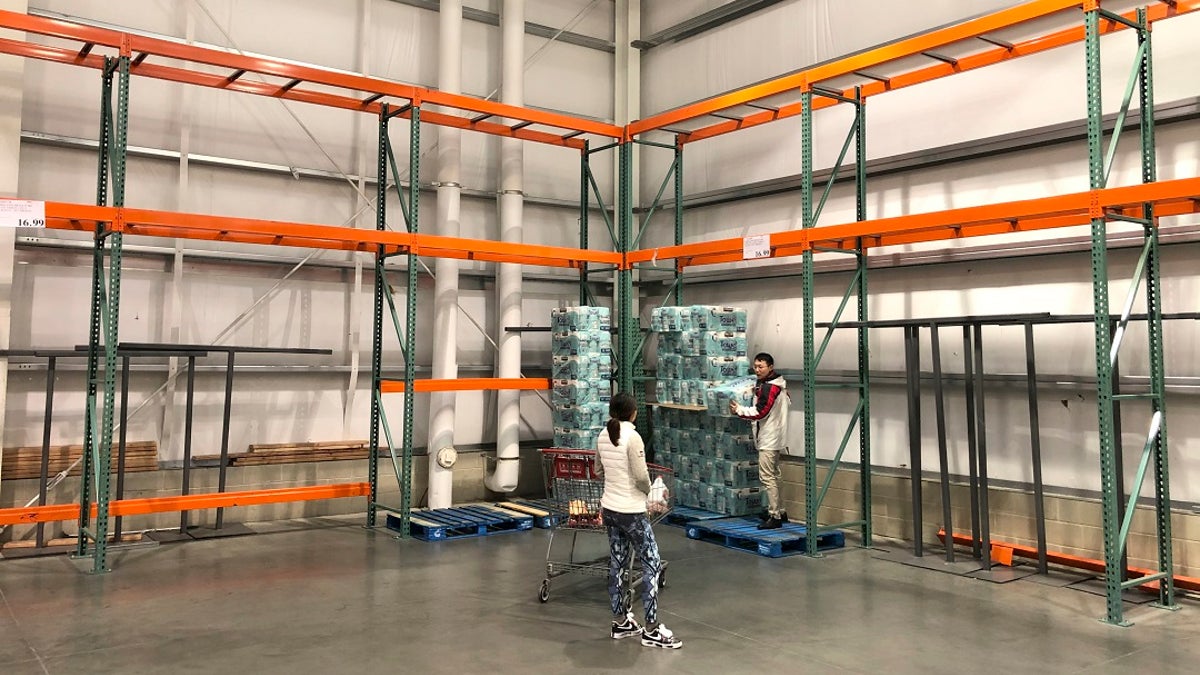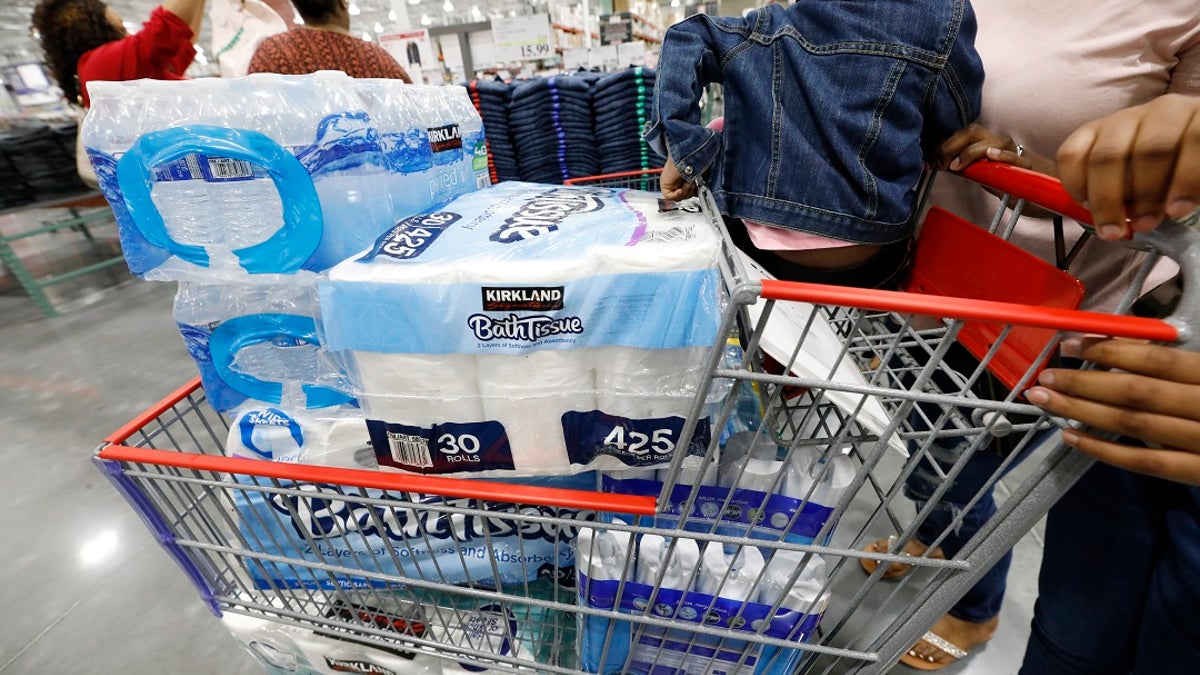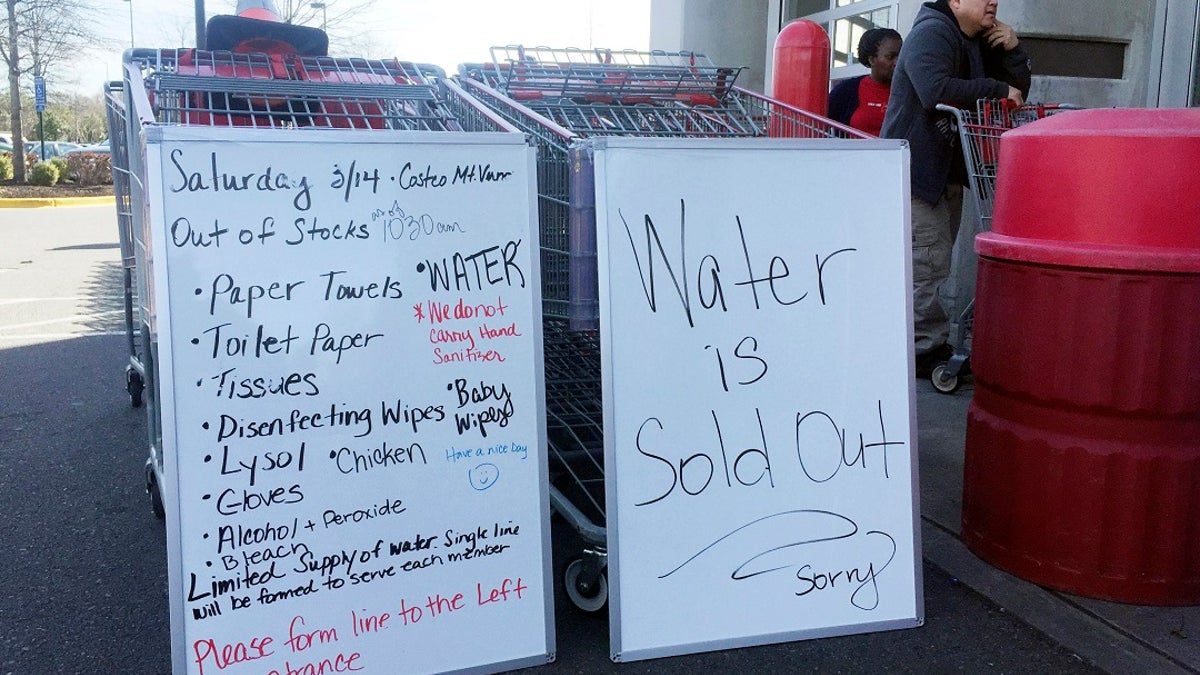As coronavirus spreads, these major items are disappearing from many store shelves
The advent of the coronavirus has caused people to purchase various items en masse, leading to shortages. These are the items that have become rare in stores.
As the coronavirus continues to spread, many panicked shoppers are stocking up on supplies at an alarming rate to possibly get them through days or weeks of being holed up indoors.
The surge in demand for everyday products is prompting shortages of critical items and leaving grocery store shelves unusually empty.
Videos and images shoppers hoarding soap, toilet paper and other essential goods have flooded social media as officials continue to warn to stay equipped with the basics.
CLICK FOR COMPLETE CORONAVIRUS COVERAGE

Customers take some of the last paper towels off a palette in a Costco store in Teterboro, N.J., earlier this month. (AP Photo/Seth Wenig)
Hand sanitizer
The most sought-after item is alcohol-based hand sanitizer, an alternative to soap and water while on the go. Media coverage of the pandemic has driven demand for such items. Some third-party sellers are taking advantage of the crisis and have hiked up prices significantly, to as much as $100 per bottle.
Amazon said over the weekend that it has blocked and removed tens of thousands of items after prices were artificially raised.
"We're also working to ensure that no one artificially raises prices on basic-need products during this pandemic," the company said in a blog post.
Gary Millerchip, the senior vice president and chief financial officer for Kroger, one of America's largest grocers, recommends emailing companies directly to place orders or ask to be placed on a back order to ensure delivery when items come in.
Instead of waiting for store to re-stock, others have taken on the challenge of making their own hand sanitizer.
Toilet paper
No item's disappearance has been more visible than toilet paper. Store chains across the country have resorted to implementing sales restrictions of a limited number of items per shopper after fights between shoppers and images of shopping carts filled with dozens of toilet paper rolls went viral.

Customers take advantage of the grand opening of a new Costco store in Ridgeland, Miss., to stock up on water and bathroom tissue and cleaning supplies to help deal with coronavirus. (AP Photo/Rogelio V. Solis)
While most people have never had to think of what to do should they run out of toilet paper, there are alternatives, including wet wipes, paper towels or just washing off in the shower.
Water
Many U.S. cities and states have suspended the shutting off of water as the demand for bottled water continues to increase. Many municipalities are assuring residents that water from their faucets is safe to drink.
The Environmental Protection Agency (EPA) said the virus has not been detected in drinking-water supplies.

A sign outside a Costco warehouse store in Alexandria, Va., advises shoppers which items have sold out over the weekend. As fears of coronavirus grip the nation, Americans are rushing to stock up on staples and disinfectants. (AP Photo/Kevin S. Vineys)
"Americans can continue to use and drink water from their tap as usual," the EPA said. "EPA has established regulations with treatment requirements for public water systems that prevent waterborne pathogens such as viruses from contaminating drinking water and wastewater."
Food
Many grocers are limiting the number of certain items that can be purchased, such as milk, eggs and meat. As stores continue to restock their shelves, some shoppers are resorting to canned goods, frozen fruits and other alternatives.
President Trump assured Americans on Monday that there is no need to hoard supplies, saying the supply chain remained healthy.
“You don’t have to buy so much, take it easy, just relax," he said during a coronavirus task force briefing at the White House.
Cleaning supplies
Disinfectants such as wipes and sprays are popular for use against the coronavirus. Everything from hand and liquid soap to dishwashing detergent are disappearing from store shelves as the virus continues to spread.
Experts say the cleaning of surfaces is crucial to preventing the spread of the virus.
To see the full list of EPA-approved disinfectants, click here.




